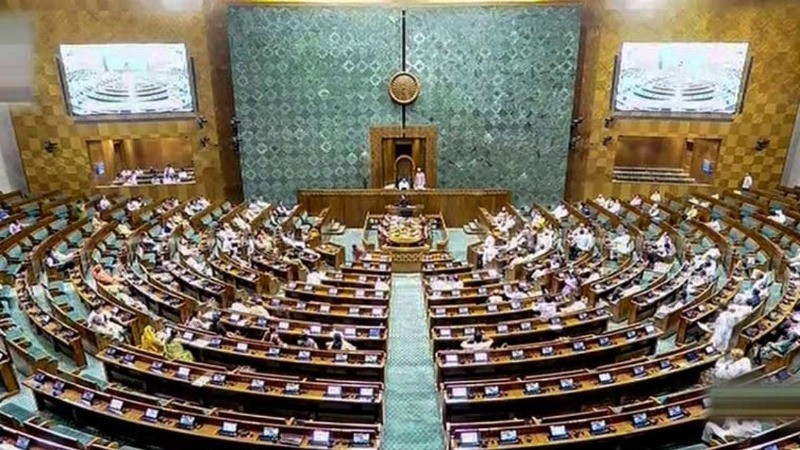
The Narendra Modi-led central government is set to table two significant bills in the Lok Sabha today to introduce the 'One Nation, One Election' policy, aiming to synchronize Lok Sabha and state assembly elections across the country. According to the updated schedule of business in the lower house, Union Law Minister Arjun Ram Meghwal will present the bills.
The two bills, approved by the central government on December 12, include:
These bills were initially planned for introduction on December 16 but were rescheduled for today.
What is 'One Nation, One Election'?
The 'One Nation, One Election' step proposes holding elections for the Lok Sabha and state legislative assemblies cuncurrently. This policy aims to streamline the electoral process, reduce costs, and minimize disruptions caused by frequent polls.
BJP Leaders Back the Proposal
Several Bharatiya Janata Party (BJP) leaders have expressed strong support for the bill. BJP Rajya Sabha MP Brij Lal highlighted that simultaneous elections were held regularly until 1966. He emphasized the advantages of the proposed system, noting that it would save resources and ensure continuity in development projects.
"We welcome this bill. Elections used to be held together until 1966. Now, elections happen throughout the year, which keeps our forces occupied for security and law enforcement during polling periods. Development projects also come to a standstill due to the Model Code of Conduct. Implementing 'One Nation, One Election' will save time, money, and accelerate progress," Brij Lal said.
Supporting his view, Rajya Sabha MP Rekha Sharma stressed the importance of saving public funds and resources. "This bill is very important. It will save a significant amount of money, time, and effort. The savings can be utilized for infrastructure development and other essential projects. This initiative should have been implemented earlier," Sharma added.
Union Cabinet’s Approval
Earlier, the Union Cabinet approved the proposal based on recommendations by a High-Level Committee on Simultaneous Elections, led by former President Ram Nath Kovind. The committee suggested a phased implementation plan:
In the first phase, elections for the Lok Sabha and state assemblies would be held simultaneously.
In the second phase, local body elections (such as panchayat and municipality polls) would be conducted within 100 days of the general elections.
The Modi government’s move to table these bills marks a major step toward achieving the vision of 'One Nation, One Election.' The initiative is expected to bring efficiency, reduce costs, and ensure the smooth implementation of government policies and development projects without frequent interruptions.